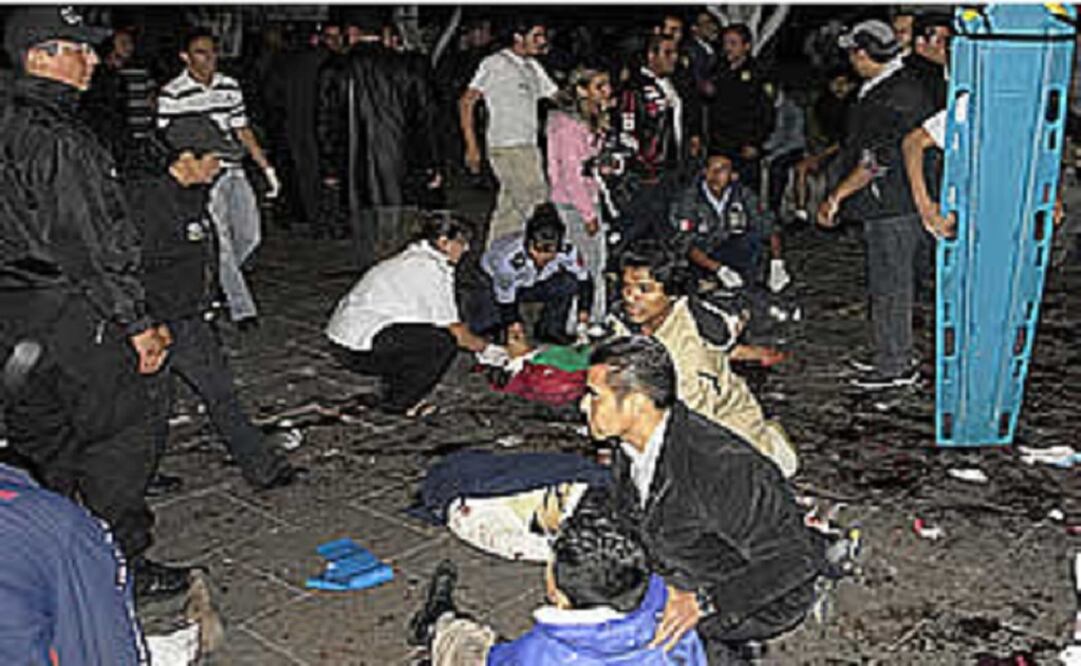Más Información

Romería decembrina comienza a instalarse a un costado de la Alameda Central; colocan puestos y juegos mecánicos

Dashia, joven acusada de extorsión, enfrentará proceso en libertad; Citlalli Hernández anuncia cambio de medida cautelar
A judge has freed four men imprisoned for almost seven years on charges they threw hand grenades into a crowd at a Mexican independence day celebration in 2008, killing eight people.
The Federal Judiciary Council said Wednesday that the judge declared the men innocent, ruling three of them had been tortured before signing confessions. The judge further ruled that protected witnesses who accused the fourth suspect of being a leader of the Zetas cartel, which was presumably behind the attack, lacked credibility.
Hours later, the Attorney General's Office announced in a brief statement that it would appeal the judge's decision.
At the time of the attack, the Zetas and the La Familia cartel were battling over Michoacán. The theory was that the Zetas staged the grenade attack to create problems for La Familia on its home turf.
The men's arrest came under strange circumstances, in which they may have been kidnapped and tortured by the La Familia drug cartel and then handed over to police.
Federal police say an anonymous phone tip led them to a house in the Michoacán town of Apatzingán, a known stronghold for La Familia, where they found three men tied up, blindfolded and whimpering. The tip came days after the government accused La Familia of being behind the grenade attack, leading the cartel to hang a banner claiming its innocence and vowing to find the killers.
The four men had continually maintained their innocence. They said they weren't even in Morelia, the capital of the western Michoacán state where the attack occurred. Sixteen people came forward to back up the men's story that they were in the Pacific coast port of Lázaro Cardenas at that time.
The judge ruled the defendants' rights were violated by the release of a video of them confessing without a lawyer and bu the falsification of a signature on the confession.
It was the latest example of the lengthy and difficult process in Mexico to toss out false accusations.
In December, a federal judge dismissed weapons possession charges against two women who witnessed the army killing of suspected drug gang members in southern Mexico last June 30. The women claimed they had been tortured and threatened to coerce them into supporting the army's version that the suspects were killed in a shootout.
A human rights investigation later found that between 12 and 15 suspects were killed after they surrendered.
Noticias según tus intereses
[Publicidad]
[Publicidad]












